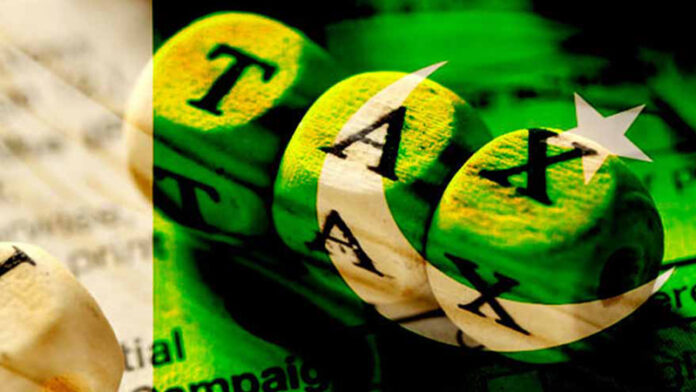Taxes in Pakistan are complicated, with an expansion of taxes imposed on the federal, provincial, and local degrees. A number of the most essential taxes exist in Pakistan is:
Daily routine taxes in Pakistan
Income tax: This is a tax on income earned by individuals and organizations. The cutting-edge earnings tax price in Pakistan is 15% for people and 35% for companies.
Sales tax: that is a tax on the sale of products and services. The modern income tax price in Pakistan is 17%.
Excise obligation: this is a tax on positive items, along with alcohol, tobacco, and petroleum products. The excise duty fee varies depending at the product.
Customs duty: this is a tax on goods imported into Pakistan. The customs responsibility price varies relying at the product.
Agricultural income tax: that is a tax on profits earned from agriculture. The rural income tax rate varies depending at the province.
Belongings tax: that is a tax on real property. The belongings tax fee varies depending at the municipality.
Similarly to those taxes, there are some of different taxes and expenses that are imposed in Pakistan. These include
Motor vehicle tax: this is a tax at the possession of motor vehicles. The motor vehicle tax charge varies depending at the type of automobile.
Wealth tax: this is a tax at the internet wealth of people. The wealth tax rate is 1% for people with a internet wealth of over Rs.20 million.
Social safety contributions: these are contributions paid by using employers and employees to finance social protection benefits, which includes pensions and disability benefits. The social security contribution price is 6% for employers and 6% for personnel. The Pakistani authorities uses tax revenue to finance a extensive range of sports, together with infrastructure improvement, education, healthcare, and social welfare packages. The government is likewise running to improve tax compliance and performance with the intention to growth tax sales.

Here is a comprehensive listing of various kinds of taxes:
Taxes on income and wealth:
Income tax: A tax levied at the earnings earned with the aid of people and organizations.
Capital gains tax: A tax on profits found out from the sale of belongings, together with shares, bonds, or real property. a tax levied at the sale of goods and services.
Wealth tax: A tax on the net wealth of individuals, often levied on people with significant belongings.
Inheritance tax: A tax at the transfer of belongings from a deceased character to their heirs.
Present tax: A tax on the transfer of belongings from one individual to some other throughout their lifetime.
Taxes on intake and spending:
Cost-introduced tax (VAT): A tax levied at the value introduced to a product or service at each stage of production or distribution.
Excise tax: a tax levied on particular goods or services, regularly those taken into consideration dangerous or non-important.
Customs duty: A tax levied on goods imported into a rustic.
Taxes on belongings and possession.
Assets tax: A tax levied on the ownership of real estate, which includes land, buildings, and systems.
Vehicle tax: A tax levied at the possession of motor automobiles.
Stamp obligation: A tax levied on criminal documents, along with contracts, deeds, and leases.
Taxes on particular transactions or sports:
Payroll tax: A tax levied on employers and employees to fund social protection applications, including pensions and incapacity benefits.
Company tax: A tax levied at the profits of organizations.
Sin taxes: Taxes levied on goods or offerings considered dangerous or undesirable, which includes alcohol, tobacco, and gambling.
Environmental taxes: Taxes levied on activities that pollute or harm the environment.
Tourism taxes: Taxes levied on vacationers or visitors to a particular area.
Other taxes and fees:

Neighborhood taxes: Taxes levied through local governments, consisting of towns, counties, and municipalities.
Special prices: prices charged for unique offerings or permits, including motive force’s licenses, commercial enterprise licenses, or building allows.
Courtroom fees: costs charged for submitting prison files or acting in court docket.
Regulatory expenses: fees charged to corporations or individuals to cover the expenses of rules or inspections.
Person expenses: charges charged for the use of public facilities or offerings, such as toll roads, parks, or libraries.Corporations are challenge to a ramification of taxes, depending on their shape, area, and sports. Here is a general review of taxes levied on agencies:
Company earnings tax: this is a tax on the earnings of groups. The corporate profits tax charge varies from united states of america to united states, however it normally degrees from 20% to 35%.
Partnership earnings tax: Partnerships are not considered separate prison entities for tax functions, so the partners themselves are chargeable for paying taxes at the partnership’s profits. Partnership income is generally taxed at the character earnings tax price.
Self-employment tax: that is a tax at the income earned by self-employed people, which include sole proprietors and freelancers. The self-employment tax price generally includes a portion for Social protection and Medicare.
Sales tax: businesses that promote goods or services are often required to collect and remit income tax to the authorities. The income tax fee varies from nation to nation or usa to u . S ..
Payroll taxes: organizations are answerable for withholding and paying payroll taxes on behalf in their employees. Payroll taxes usually include Social protection, Medicare, and unemployment coverage taxes.
Belongings tax: organizations that personal actual property are usually required to pay assets tax to the neighborhood government. The property tax fee is based totally at the assessed cost of the belongings.
Excise tax: that is a tax levied on specific items or offerings, often those taken into consideration dangerous or non-critical, along with alcohol, tobacco, and gasoline.
Customs responsibility: groups that import goods from other countries are typically required to pay customs responsibility. The customs responsibility charge varies depending at the sort of goods being imported.
Commercial enterprise license tax: groups can be required to achieve a business license from the neighborhood authorities and pay a corresponding business license tax.
Franchise tax: Businesses that function as franchises can be required to pay a franchise tax to the franchisor.
This list is not exhaustive, and there can be other taxes that apply to organizations relying on their area, enterprise, and activities. It’s beneficial for businesses to consult with a tax guide to make certain they are compliant with all applicable tax laws.
Here’s a table summarizing the taxes and their applicability in Pakistan:
| Tax | Applies in Pakistan? |
| Corporate profits tax | yes |
| Partnership earnings tax | yes |
| Self-employment tax | yes |
| Income tax | yes |
| Payroll taxes | yes |
| Property tax | yes |
| Excise tax | yes |
| Customs duty | yes |
| Franchise tax | yes |
| Enterprise license tax | yes |
As you could see, all of the taxes I stated are relevant in Pakistan. But, the rates and exemptions for each tax may range depending at the specific instances of the commercial enterprise. It is constantly advisable for groups to seek advice from a tax marketing consultant to make certain they are compliant with all applicable tax legal guidelines.

Here Is The Percentage a Normal Man Have to Pay In Pakistan
The quantity of tax that a common guy has to pay in Pakistan depends on their earnings degree and way of life. However, there are some popular estimates that may be made.
Profits Tax: The profits tax charge in Pakistan is 15% for individuals with an annual profits of over Rs. Five million. Which means that a common guy who earns Rs. 50,000 in step with month could must pay round Rs. 5,000 in earnings tax in step with.
Sales Tax: The income tax rate in Pakistan is 17%. Because of this a common man who spends Rs. 10,000 in step with month on goods and offerings could need to pay round Rs. 1,700 in income tax in step with year.
The property tax: Property Tax rate in Pakistan varies relying on the location and price of the property. But, it is typically around 1% of the assessed price of the assets. Which means a commonplace guy who owns a residence with an assessed price of Rs. Five million could have to pay round Rs. 50,000 in belongings tax in line with year.
The motor vehicle tax: charge in Pakistan varies relying on the sort and age of the automobile. However, it’s miles commonly around 2% of the assessed fee of the car. This means that a not unusual man who owns a vehicle with an assessed fee of Rs. 1 million would must pay round Rs. 20,000 in motor automobile tax in step with year.
Different Taxes: Similarly to the taxes referred to above, there are some of different taxes that a common man may additionally need to pay in Pakistan, which include:
Excise responsibility on alcohol and tobacco
Customs responsibility on imported items
Stamp duty on criminal files
Social security contributions
Payroll taxes
The total quantity of tax that a common man has to pay in Pakistan will vary depending on their man or woman situations. However, the estimates above can provide a widespread idea of the extent of taxation inside the United States. It’s crucial to notice that these are simply estimates, and the real amount of tax that a common man has to pay can be higher or decrease. It is continually advisable to consult with a tax consultant to get a greater correct estimate of your tax liability.
These Information Is Collected By Halaat Pakistan Team

